women in Afghanistan They can no longer study, nor can they go to the beauty salon and they are being fired from the few jobs they have if they don’t wear a burqa. Those are just some of the many restrictions imposed by the Taliban two years after they returned to power on August 15, 2021.
According to the United Nations, during this time violations of the human rights of women and girls have increased steadily until they are practically excluded from public life from the country. This despite the fact that at first the taliban promised that the women they could exercise their rights within the limits of sharia, or Islamic law, which include the right to work and study.
LOOK: Which are the main criminal groups in Ecuador, where do they operate and to which other countries do their tentacles extend?
The NGO Human Rights Watch reports that in addition to restricting the rights of women and girlsthe Taliban have also imposed extensive censorship of the media and access to information, and increased arrests of journalists and other critics.
“The population of Afghanistan lives a humanitarian and human rights nightmare under the Taliban regime”, said Fereshta Abbasi, Afghanistan researcher at Human Rights Watch. “The leaders taliban they must urgently stop their abusive rules and policies, and the international community must hold them accountable for the current crises,” he added.
Human Rights Watch also recalls that women are prohibited from working for humanitarian organizations.
“The misogynistic policies of the taliban they show total disregard for the fundamental rights of women,” Abbasi said. “Their policies and restrictions harm not only Afghan women activists and rights defenders, but also ordinary women trying to lead a normal life.”
Human Rights Watch calls on donor countries to find ways to mitigate the current humanitarian crisis without reinforcing the repressive policies of the taliban against women.
For his part, International Amnesty states that the political and labor space for women it has narrowed and the opportunities that once promised significant social change have evaporated. “The freedom of movementa symbol of independence and autonomy, has also been severely restricted,” he says.
Here are 10 of the restrictions imposed by the Taliban on women:
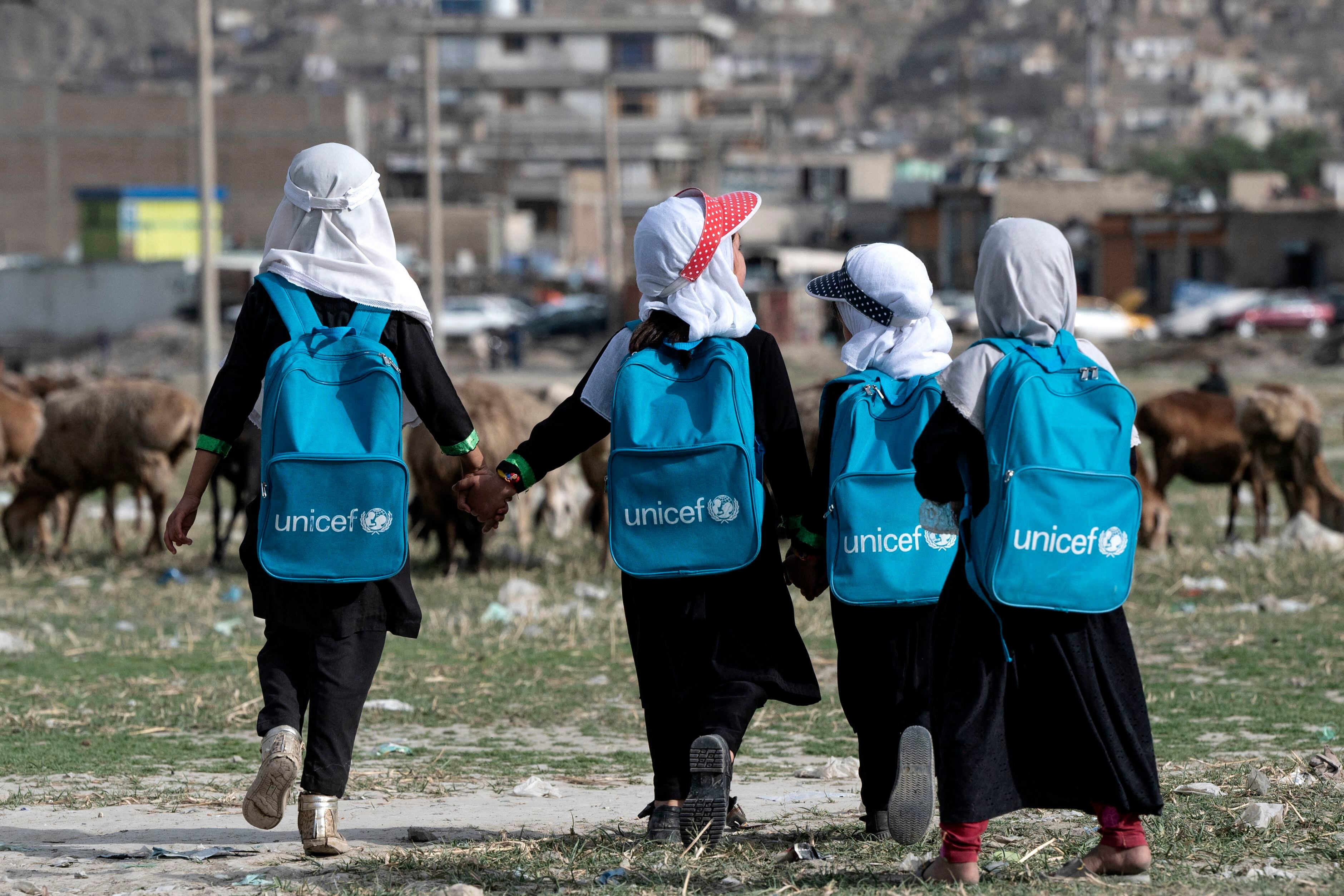
In August 2021, as soon as the taliban seized power, girls over the age of 12 were banned from going to school in Afghanistan.
As for higher education, at first the taliban they imposed strict segregation by sex, dividing women and men. But at the end of 2022, a decree from the Ministry of Education completely expelled women from higher learning spaces. As a result, some 100,000 women saw their goals of becoming professionals frustrated.
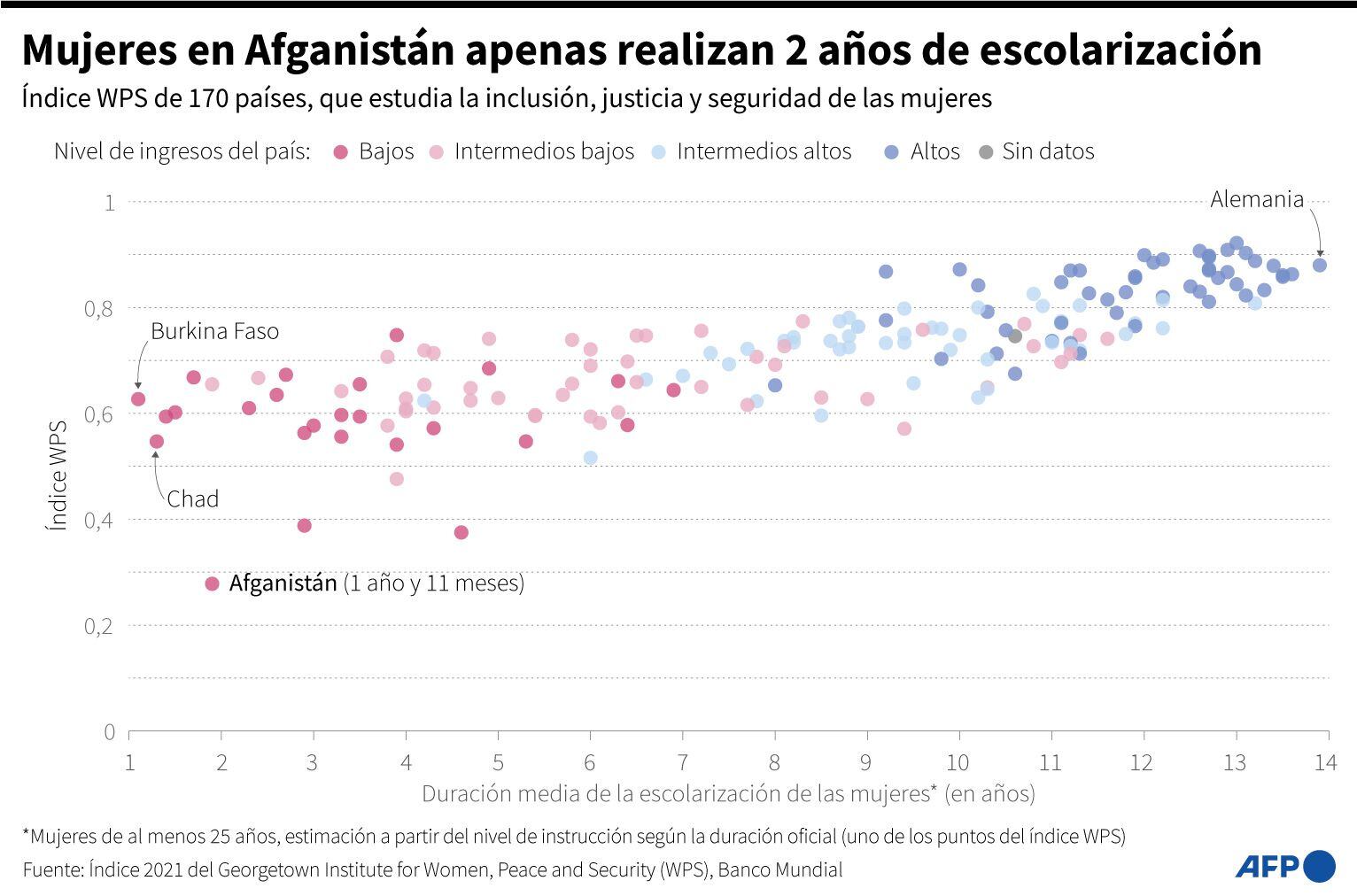
The taliban women were prohibited from working outside the home. Only a limited number of women doctors and nurses, among other professions and trades, are allowed to work in certain hospitals in Kabul to care for women and girls, and as long as they cannot be replaced by men. Furthermore, they are prohibited from interacting with their male colleagues.
There are very few female doctors in rural areas and they too are subject to the same movement restrictions as their patients. Women cannot travel without the company of a mahrama male relative, such as a father, husband, or brother.
In the public administration Some positions are maintained for women, especially in those offices that are dedicated to female care, which also prohibit contact with strange men. But since last week the Taliban ordered the dismissal of all those employees who do not come to their posts with a burqa.
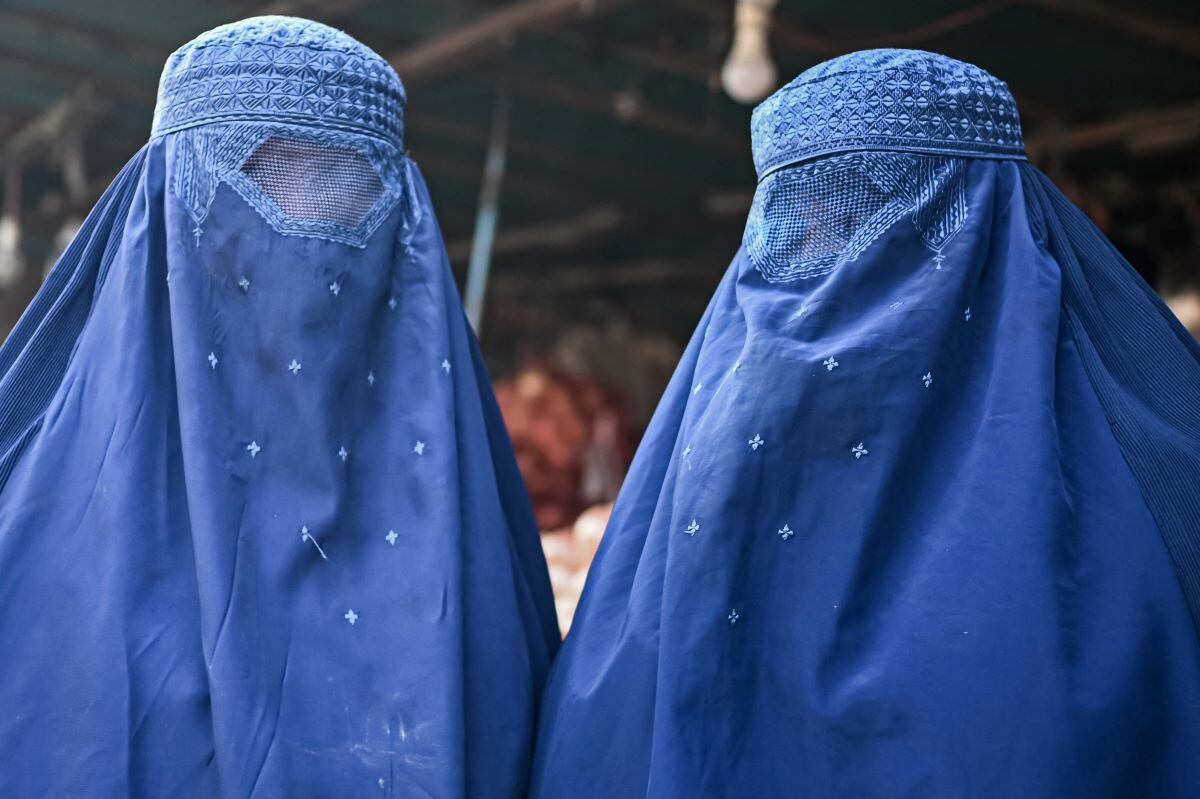
In Afghanistan women must be covered from head to toe with the burqasuit that only has a small grid at eye level so that they can see.
The women who defy the rules imposed by the taliban or who are not accompanied by their mahram they face punishments such as whippings, beatings and verbal abuse. Even seemingly harmless acts such as showing ankles can be punished, Amnesty International details.
The use of heeled shoes it is also prohibited, under the premise that they could produce a sound when walking, something that would be heard by men. Nor can they wear flared pants even if they are hidden under the burqa.
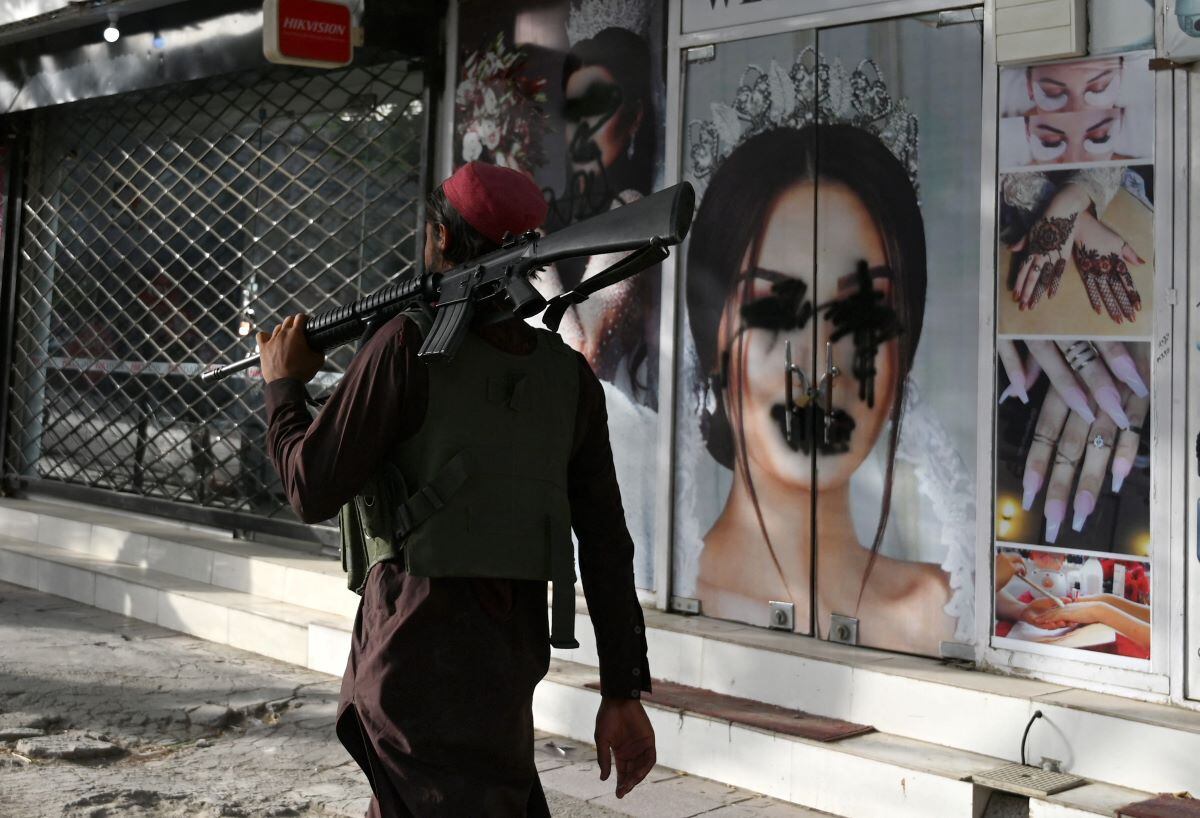
The taliban have forced the closure of Beauty salons in Afghanistan. These places were not only an essential source of income for family economies, but also played a fundamental role as safe meeting and union spaces for women, Amnesty International indicates.
Women in Afghanistan cannot leave their homes unless accompanied by a mahrama man of close kin such as father, brother, or husband.
Even if the woman has a medical emergency and must go to a hospital, she must also be accompanied by her mahram.
The women they are also prohibited from entering parks, fairs, gyms and public baths.
The women they are forbidden to play sports Afghanistan and they cannot access sports spaces either. “These bans not only harm their health and well-being, but also limit their potential to socialize, grow and develop,” Amnesty International says.
under the regime taliban, women cannot travel on public transport buses together with men. There are buses for men and for women.
In case women want to travel long distances by road, they can only do so if they are accompanied by a male escort.
Amnesty International indicates that since the arrival of the taliban to power, the number of early and forced marriages has increased enormously.
This situation does not happen because of an imposed law, but because of the serious economic and humanitarian crisis and the lack of educational and professional prospects for women and girls, families are forcing them to marry taliban.
There are even cases of marriages between adults and girls with the permission of the parents in exchange for money.
Women they can’t look out on the balconies or windows of their houses so as not to be seen.
To prevent any stranger from seeing them from the outside, it is mandatory that the windows are darkened.
Besides, no one can photograph or videotape women neither post pictures of them printed in magazines and books.
“This restriction diminishes the visibility and recognition of women in society, relegating them to a secondary role and denying their ability to influence and contribute to the development of the country,” Amnesty International stated.
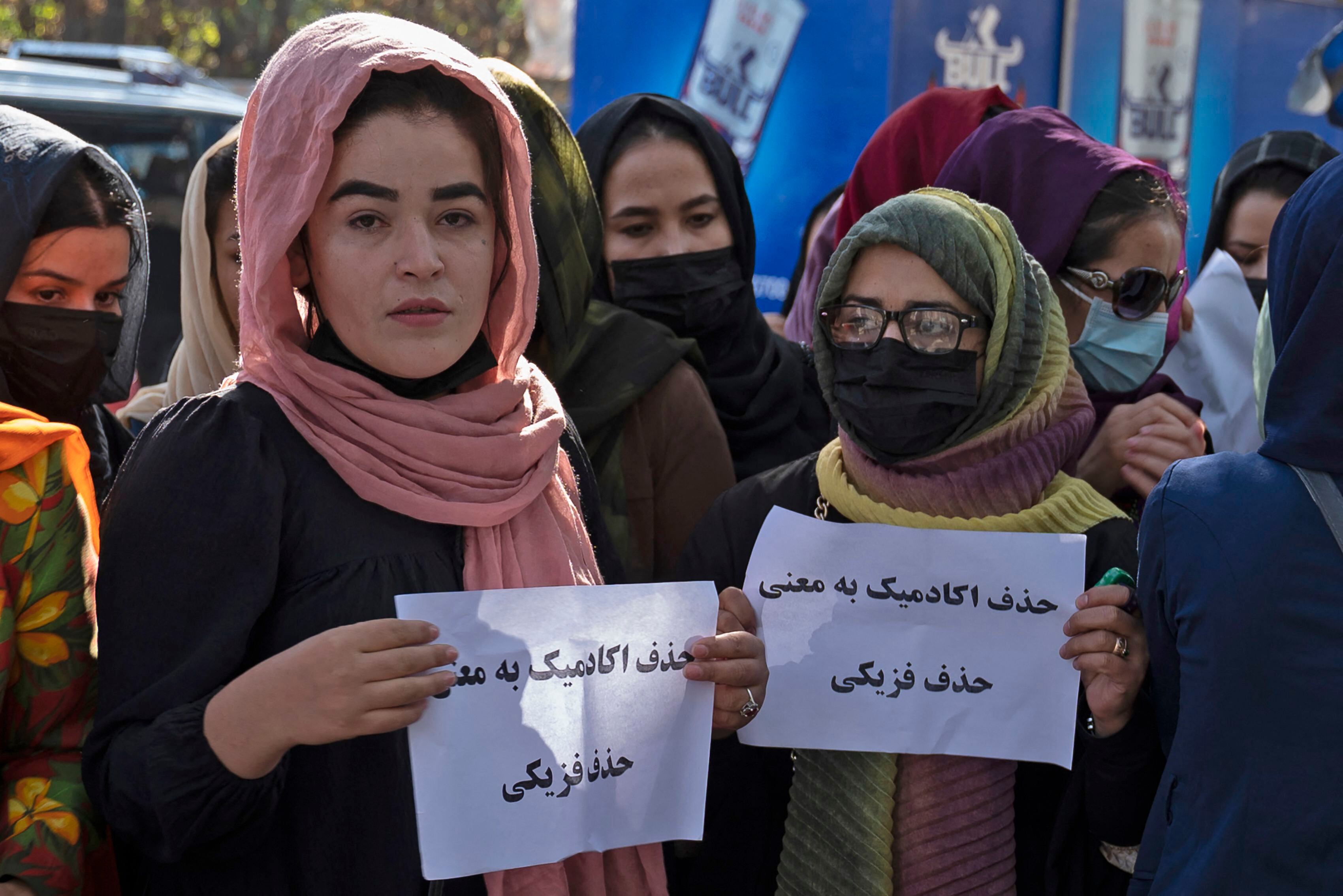
According to Amnesty International, peaceful protests have become dangerous ground for women demanding the restitution of their rights, as they have been victims of beatings and electric shocks with stun guns.
“The oppression of the Taliban has given rise to a courageous and peaceful resistance movement, led by women and girls across Afghanistan. However, this fight for basic rights such as freedom of expression, association and assembly is not exempt from suffering and adversity”, the NGO specifies.
Source: Elcomercio
I am Jack Morton and I work in 24 News Recorder. I mostly cover world news and I have also authored 24 news recorder. I find this work highly interesting and it allows me to keep up with current events happening around the world.

:quality(75)/cloudfront-us-east-1.images.arcpublishing.com/elcomercio/5CB6OOX5ANHVXIJM26CTB5JJNU.jpg)

:quality(75)/cloudfront-us-east-1.images.arcpublishing.com/elcomercio/6T6INW47VFEAZBZ5N2XYOVHXHI.jpg)
:quality(75)/cloudfront-us-east-1.images.arcpublishing.com/elcomercio/WFGVGDBK7ZFTJGAZVAZG6FD6TI.jpg)
:quality(75)/cloudfront-us-east-1.images.arcpublishing.com/elcomercio/OCBSDWM6DNECBBKZJ6PCWJB67Q.jpg)
:quality(75)/cloudfront-us-east-1.images.arcpublishing.com/elcomercio/SY3SHBR6JBE2NCKXW5SVUCDX2U.jpg)
